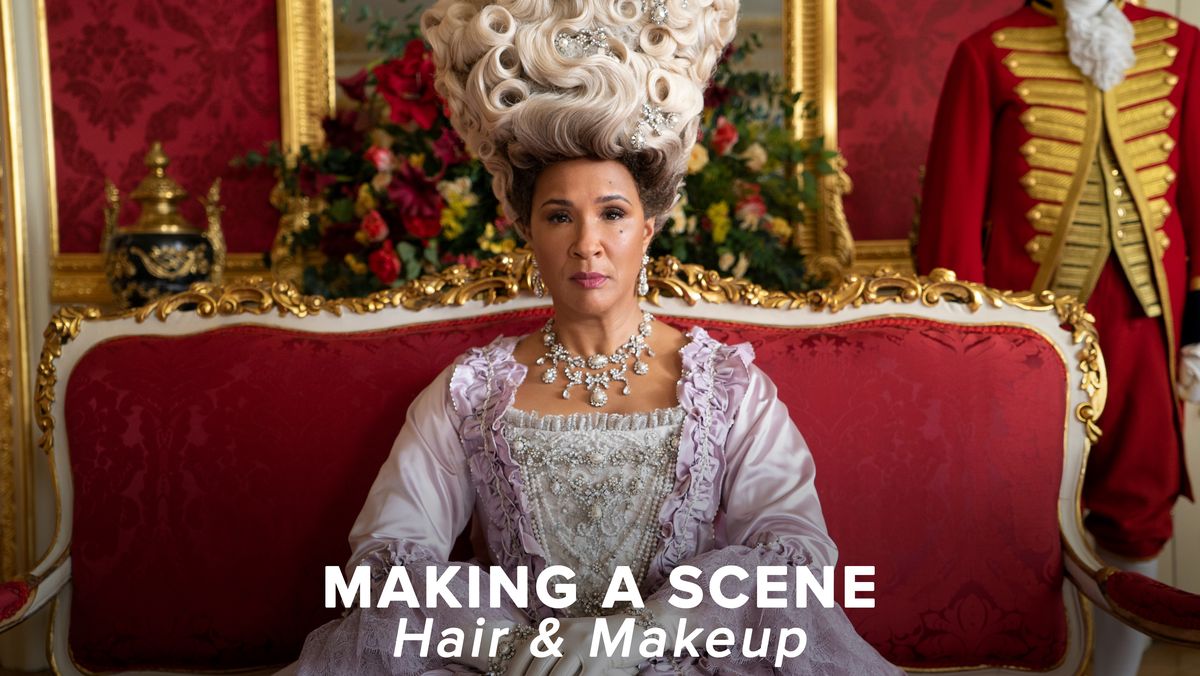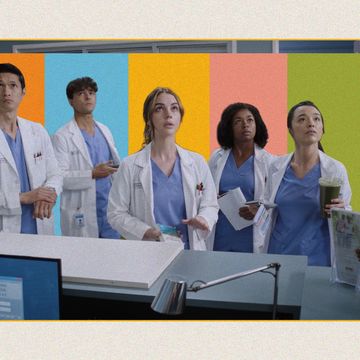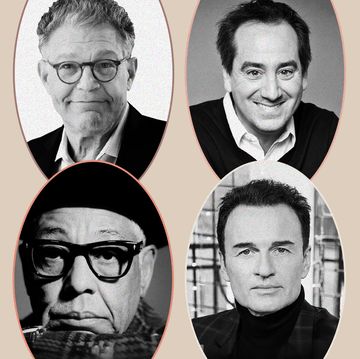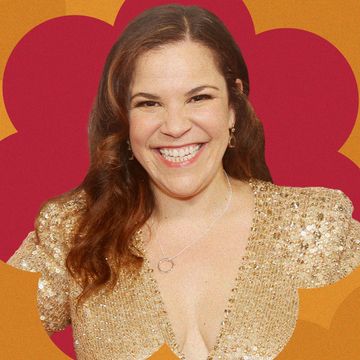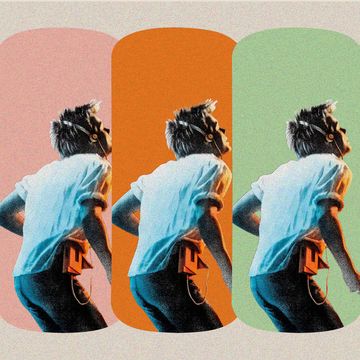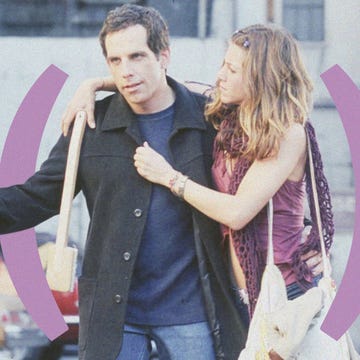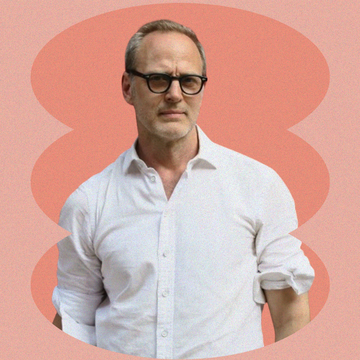As an accomplished TV writer, Sera Gamble has penned some of the most compelling characters we’ve seen on television, from Julia Wicker in the Syfy series The Magicians to the beloved Winchester brothers on the CW’s Supernatural, which ran for 15 seasons.
But what has really captured the pop culture zeitgeist is Gamble’s insanely popular — and tweeted about — Netflix series You, which premieres its third season on October 15. The series, an adaptation of the namesake book by Caroline Kepnes, is cocreated and produced with Greg Berlanti and, in season one, follows Joe Goldberg (Penn Badgley), a bookstore manager in New York who is infatuated with a young writer, Guinevere Beck (Elizabeth Lail), whom he stalks online and in real life in the hopes of keeping anyone from getting in the way of their “love.”
In the second season, Joe moves to Los Angeles, where he reignites his same pattern of toxicity, obsession, and violence toward women. Things get, well, complicated when he meets Love Quinn (Victoria Pedretti), with whom Joe is desperate to try and have a real, functioning relationship. According to the trailer for season three, however, that’s not exactly how things go down, as Love and Joe have a baby named Henry, embarking on an unlikely (and very dysfunctional) path of marriage and family.
Part of what makes the show such an insatiable watch is that the fear and suspense that Gamble — who claims to be “a horror writer in my heart” — so deftly crafts in You come from our own conflicted sense of wanting to be wanted, which Gamble gets. Romance is great, but, as she says, “Nobody should be chasing anyone at an airport or standing outside of a girl’s window.”
Ahead of the third season of You, Gamble — who also interviews writers on her YouTube channel and gives valuable insight and inspiration about the writing process, even sharing her editorial rejections on Instagram — sat down with Shondaland to talk shooting You during the pandemic, spoilers for season three, and her best advice to women writers.
NADJA SAYEJ: What was it like shooting during the pandemic — and how hard was it for the team behind the scenes?
SERA GAMBLE: It was easily the hardest TV I’ve ever produced. It wasn’t one thing; it was a million things every day. Our writers’ room opened in February 2020, so we basically laid out the season, then all went home. We didn’t know how we would be able to make a show like this as we learned the contours of the pandemic. There’s no show if there’s no intimacy and no violence. Everyone put their heads together and spent months doing it safely. There was a strong vibe of everyone taking care of each other. There was a strong commitment to that.
NS: Season three of You comes with a lot of anticipation for where Joe and Love’s story is headed. Any spoilers you can give us?
SG: Well, this season is about marriage and parenting, and, for Joe Goldberg, this is everything he wanted. Complete commitment from someone who loves him deeply; to be a better dad than his father. But in practice, this is a chance to get into the dark side of marriage and parenthood. It’s fun and cathartic for everyone. I got married at the end of 2019, but we all had a lot to say in the writers’ room, where we all vented about our committed relationships and kids. It’s what I appreciate about this show; it’s heightened — Love and Joe are terrible people, but we have a chance to say things about how difficult it is to be a mother in our culture, for men to figure out a better way to show up as fathers. Marriage is hard even if you’re not a murderer.
NS: A theme you talk about is the tendency to forgive men who do bad things in love — even rom-coms show the men having “borderline criminal behavior,” as you’ve said before. What do you mean by that?
SG: Our entire idea of epic romance is problematic. For the story to be exciting, the guy must cross a lot of lines that should not happen in real life. Nobody should be chasing anyone at an airport or standing outside of a girl’s window, but that seems romantic in movies. That’s why we were so attracted to bringing this book to screen. I’m not saying, “Rom-coms don’t work on me, and you should know better”; I just know that they’re problematic.
NS: Even so, do you have a favorite rom-com?
SG: I have a few. Say Anything is a movie I saw when I was young. That template for the good guy stuck with me. There’s a whole generation of women who look for John Cusak’s character in that film, Lloyd Dobler. I love swooning, so You was a good excuse to revisit that. Our erotic mind wants things that are so different than what would keep us safe and secure. I consider myself a feminist, but I am really swept up when I watch the show. It’s liberating to look at it.
NS: As a feminist, what would you say feminism means to you in today’s world?
SG: It’s a massive umbrella that doesn’t tell you too much. It’s the bare minimum. There is no other way for me to be in the world as a woman. We don’t have the choice of being a woman on and off like an outfit. It affects us every day. It’s the tip of the iceberg for my inquiry of this lifetime.
NS: Including perspective from the female gaze is becoming more normalized on TV these days. How would you say it’s explored in You?
SG: I’ve written a lot about macho TV, like in Supernatural. My job there was to put myself in the mind of these macho male characters. But on You, we talk to every director on the show about the male gaze, and one of the things we’re restrictive about is that there’s a difference between the point of view of the show and of Joe Goldberg. Joe is violating women, objectifying them, stalking them. But when we’re watching the scene, we make sure we don’t fall into the trap. The show will lose credibility if we are doing what Joe is doing. We question every shot.
NS: Outside of You, you have your own YouTube interview series where you interview other writers. Why do you think something like that is important?
SG: I didn’t know anyone in the business when I tried to break in. I banged my head against the wall until I found a door, and that wasn’t very efficient. I just didn’t understand the culture. There’s so much etiquette in a writers’ room that I didn’t know — I was quieter than I wanted to be. I wasn’t sure it was the right time to speak, or I would put my foot in my mouth. So, any way I can democratize information, I do. I want to help people who aren’t on the inside lane.
NS: What advice do you have for women writers working in TV today?
SG: We all need to agree that it’s hard being a woman in this culture. But women should just embrace that you are the complete package. That being a woman, whatever identifying characteristic of your life or background is important to you, is part of what makes you the complete package of the writer you are. It’s powerful. We need people from all different points of views. Owning every part of your story is a huge part of what makes you a better writer, and it makes you more employable. What you have to offer is that you’ve lived your life; you’ve had your experiences.
Nadja Sayej is an arts and culture journalist based in New York City who has written 5 books, including Biennale Bitch and The Celebrity Interview Book. Follow her on Twitter @nadjasayej.
Get Shondaland directly in your inbox: SUBSCRIBE TODAY

